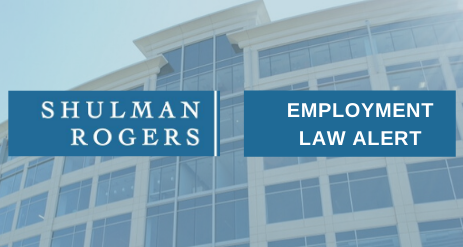August 2, 2022

|
On July 13, 2022, Maryland’s highest court issued a far-reaching decision that will impact Maryland-based companies and companies that have employees working in Maryland who are required to report to an off-site parking location or shuttled to and from a jobsite. In Mario Ernesto Amaya, et al. v. DGS Construction, LLC, et al. the Court held that the Portal-to-Portal Act (“PPA”), 29 U.S.C. §§ 251 to 262, has not been adopted or incorporated into Maryland law. The PPA, which is a federal statute, provides, among other things, that an employee’s time spent waiting at a jobsite or reporting location, and time traveling to and from a jobsite are not compensable. The Amaya v. DGS Construction, LLC and Juan Carlos Terrones Rojas, et al. v. F.R. General Contractors, Inc., et al. consolidated opinion can be found here. In Amaya, construction workers brought an action against their employer for unpaid regular and overtime wages for their time spent waiting at an off-site parking location and traveling to and from a construction site. The general contractor for the construction project required the employees to report to a designated parking lot and then travel via busses, which the general contractor also supplied, to the construction site and back each workday. The workers were not compensated for wait and travel time associated with the transportation to and from the jobsite, which averaged approximately two (2) hours per day. If the PPA had been adopted or incorporated into Maryland Law, then the workers’ wait and travel times between the parking lot and the construction site would not be compensable. In other words, what constitutes “work” under Maryland law is not limited to what is compensable under the PPA and FLSA. Under the PPA, “walking, riding, or traveling to and from the actual place of performance of the principal activity or activities which [an] employee is employed to perform” and time spent on “activities which are preliminary to or postliminary to said principal activity or activities” “which occur either prior to the time on any particular workday at which such employee commences, or subsequent to the time on any particular workday at which he ceases, such principal activity or activities” are not compensable. In other words, employees are not able to seek wages for the time spent waiting at jobsites, reporting locations, or for time spent traveling to and from a client work site. This decision could result in a significant increase in back wage liability for companies with employees working in the state of Maryland as well as increased personnel costs for employers. At this time we do not know which prelimary and postliminary work activities will be compensable under Maryland Law. This will likely be decided on a case-by-case basis unless or until the Maryland legislature gets involved. CONTACT
MORE INFORMATION
The contents of this Alert are for informational purposes only and do not constitute legal advice. If you have any questions about this Alert, please contact the Shulman Rogers attorney with whom you regularly work or a member of the Shulman Rogers Employment and Labor Law Group. To receive Employment Law Alerts and other timely news and information from Shulman Rogers, please click HERE to subscribe. |
Stay up to date with all the latest news and events.
